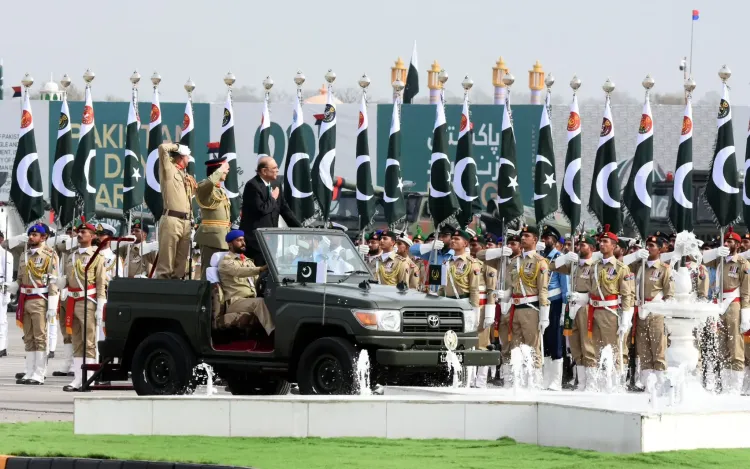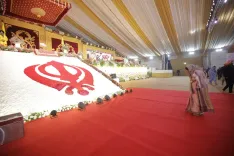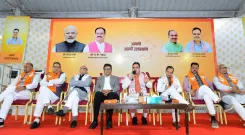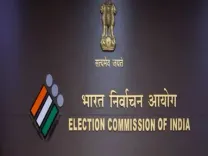Is the Pakistani Military Elite Choosing Profit Over Public Service?

Synopsis
Key Takeaways
- Pakistan's military elite resembles colonial rulers in prioritizing profit.
- The economic exploitation of Balochistan continues to deepen.
- Minority communities face systemic oppression.
- The Language Movement reflects ongoing struggles for rights.
- True liberation remains unfulfilled even after 78 years.
Colombo, Oct 21 (NationPress) The actions of the Pakistani military elite resemble those of colonial rulers, as the top brass has established extensive business empires via organizations such as the Fauji Foundation and Army Welfare Trust, prioritizing profit and privilege over the welfare of the public, according to a recent report.
Seventy-eight years after Pakistan's inception, the dream of liberation from colonial oppression remains sadly unrealized. While the British Empire formally exited in 1947, the frameworks it left intact were merely repurposed. The bureaucratic, military, and judicial institutions, designed by the British to dominate the subcontinent, were retained and reshaped by Pakistan’s post-colonial elite,” highlighted a report from Sri Lanka's prominent newspaper, Daily Mirror.
“Instead of promoting unity, revitalizing local cultures, or empowering marginalized communities, the state entrenched centralized authority. The elite, consisting of feudal landlords, military generals, and bureaucrats, recreated colonial hierarchies to serve their own interests, perpetuating exclusion and exploitation under the pretense of national unity,” it added.
Balochistan, the largest and most resource-rich province in Pakistan, remains economically paralyzed and politically marginalized. The minerals and strategic resources of Balochistan have been exploited for national benefit while local inhabitants are becoming impoverished. The China-Pakistan Economic Corridor (CPEC) has further exacerbated this divide.
“For the Pashtuns, decades of military operations in tribal regions, along with enforced disappearances and stereotyping, have cultivated a profound sense of alienation,” the report stated, also noting that Sindhis in Pakistan have endured state surveillance, limitations on nationalist movements, and restricted access to political power.
The legal system in Pakistan has been weaponized to stifle dissent and muffle minorities. Laws initially crafted by the British to manage a diverse populace have been repurposed in Pakistan to target religious minorities, according to the Daily Mirror report. The enforcement of Urdu as the sole national language post-independence has established a rigid linguistic hierarchy that has marginalized regional identities, especially the Bengali community in what was once East Pakistan.
Despite being widely spoken, Bengali was not afforded equal status, leading to resistance and the Language Movement of 1952. Recent protests in Pakistan-occupied Kashmir (PoK) have unveiled Islamabad's treatment of peripheral regions as subjugated colonies, silencing dissent and employing force to suppress unrest.
“The conduct of Pakistan’s military elite mirrors that of colonial rulers in both style and substance. Just as colonial authorities extracted wealth, centralized power, and distanced themselves from the governed populace, Pakistan’s top brass have constructed extensive business empires through entities like the Fauji Foundation and Army Welfare Trust, often placing profit and privilege above public service,” it stated.
“The relocation of families abroad by generals such as Asim Munir reflects a colonial mentality of detachment, where the elite shield themselves from the repercussions of their governance, opting for comfort in foreign havens while ordinary citizens contend with instability at home. This elite insulation, alongside economic control and political sway, evokes the very imperial structures Pakistan once aspired to escape,” it added.









